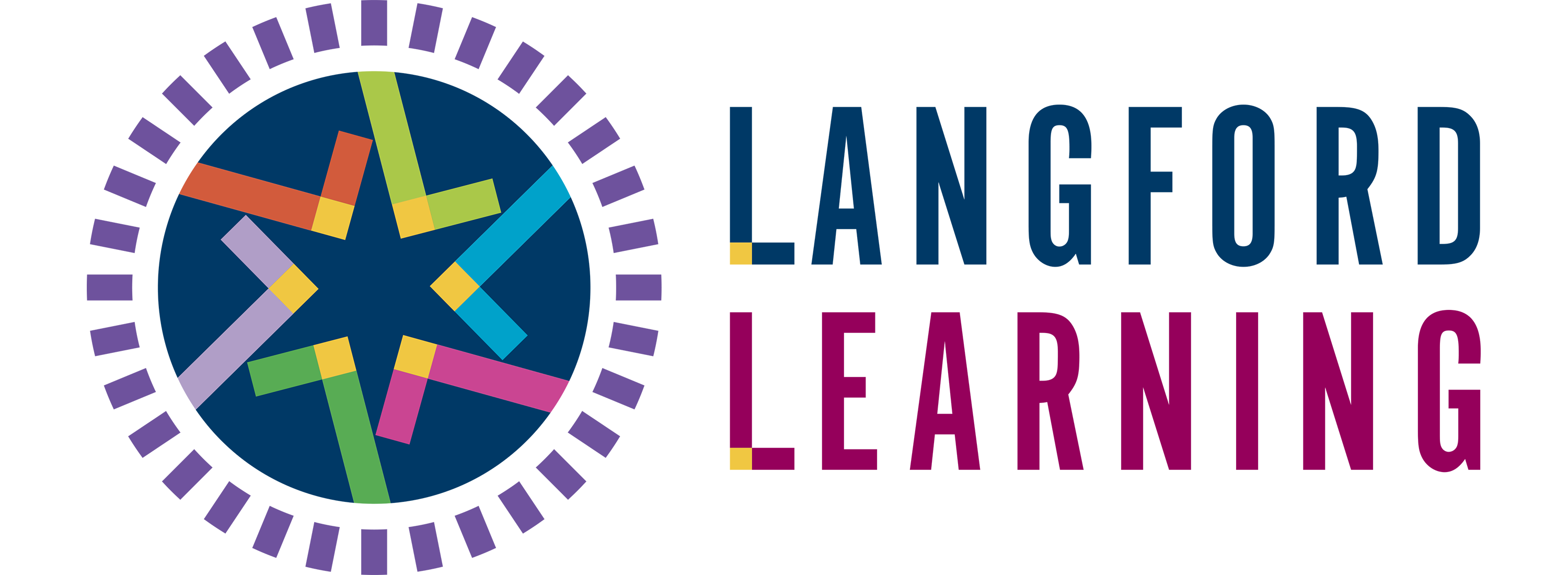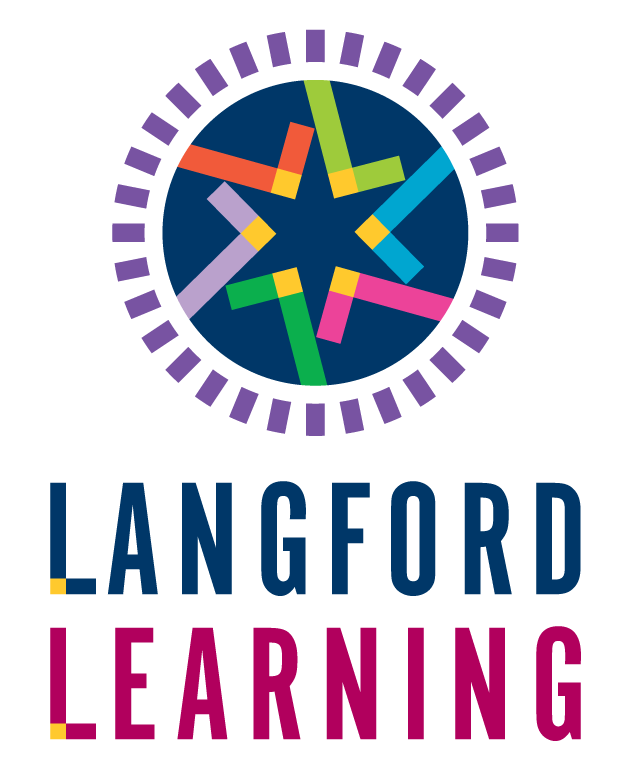Quality is the Answer: Deming in Education with David P. Langford (Part 6)
- David Langford
- Education, Podcast
- 0 Comments

This podcast was originally published on In Their Own Words for The W. Edwards Deming Institute
With nearly 2 million students not returning to schools and educational institutions after COVID, David and Andrew explore the question “how do we create quality education systems so students are excited to come to school – and stay there?”
TRANSCRIPT
0:00:02.8 Andrew Stotz: My name is Andrew Stotz, and I’ll be your host, as we continue our journey into the teachings of Dr. W Edwards Deming today. I’m continuing my discussion with David P. Lanford, who has devoted his life to applying Dr. Deming’s philosophy to education. And he offers us his practical advice for implementation. Today’s topic is, “Quality is not your problem, it is the answer to your problem.” David, take it away.
0:00:30.4 David P. Lanford: [laughter] Thank you, Andrew. It’s good to be back again.
0:00:32.6 AS: Great to be with you.
0:00:33.8 DL: So and thinking about this topic, we want to think about what is quality in education and just some of the stats that are coming out in the United States alone, something like 1.3 million students have not returned to the school systems after the pandemic. So.
0:00:56.2 AS: That’s unbelievable.
0:00:58.0 DL: The public school systems.
0:01:00.4 AS: Right.
0:01:00.5 DL: And, the stat I heard in the universities is they’re down 600,000 students from where they were two years ago before the pandemic. So…
0:01:09.4 AS: So we’re talking about almost 2 million students not coming back?
0:01:13.9 DL: That’s right. So there’s the pandemic caused a lot of systemic shifts. Some of them good, some of them not so good, but it also pointed out a lot of glaring issues that were going on and… In trust in the system, so to speak. And when parents started to find out what was going on with these Zoom meetings online and what a class was like, and the quality of the education and what was going on, many of them just started to make decisions about why should I keep sending my child [laughter] to a school like that if that’s what they’re gonna do. I was listening to a sports channel just a couple of days ago, and there were just the two guys that were on the channel, discussing sports in the morning. Well, one father was really upset because he said it’s the last week or week and a half of school, and all my child is doing is watching movies in almost every class.
0:02:20.4 DL: And granted that it’s the end of the school year and they’re wrapping up and they’re doing things at the end of the school year. But when the kids come home and mom or dad says, “Hey, what did you do at school today?” And they say nothing, which is a very common answer. We tend to think, “Oh, it is just… Oh, they’re just kids, they are just kids and just can’t remember,” etcetera, but that’s really not the case. In a lot of cases, there is nothing going on. And so when parents figured out that, okay, I could either do homeschooling. I could send my child to private school. I could go to a charter school, there’s a whole lot of the other options there that I can explore and we could actually make this happen.
0:03:15.2 DL: And is that a better experience? Is it a better quality experience? So the topic today about so many schools are not worrying about the quality of what they’re doing and they want to start just trying to force parents to get kids back into schools or the same way at the universities, not making a shift in what it is they’re doing and just expecting that, oh, well, these students are just gonna come back. But another shift, I think systemically since this is about Deming and education and the system, is that a lot of students during the pandemic didn’t go to college and they found out there’s some really high paying jobs out there now [chuckle], and you don’t need a college degree. And why would I… And since college is attached to debt now, so why would I incur a huge amount of debt and end up with a job that pays less than what I could make if I don’t go to college? So that…
0:04:19.5 AS: It’s a world turned upside down. It seems like, and one of the questions I had too about this was that, what is the aim of the public education system? Because on the one hand the people who can abandon the public system and do homeschooling or do a charter school or a private school or whatever. Yeah. I mean, they’re not gonna worry about those people that can take care of themselves, but majority of people do not have the means to do that. And so it makes me think, what is that aim and how does quality come into play here?
0:04:58.2 DL: Well, another shift that’s happening, especially in the United States is that all of a sudden these parents started coming to school board meetings and showing up in droves, and starting to demanding changes. And it’s really interesting that the public education system especially is not used to having customers, right. And so they… When I first started doing training in education, especially with talking about Deming principles, etcetera, etcetera, I actually got a lot of pushback, well, we don’t have customers and we don’t have this. And even just using that word in education kind of still drive some educators crazy. Like I even had people come up to me and say, I got into education, so I wouldn’t have to have customers.
[laughter]
0:05:53.9 DL: So that whole thinking, and if you think about a systems diagram from a Deming perspective about inputs into the system, the system itself, and then what the system produces and how that affects, and then the innovation that you get on the upside and that cycle of continually going through that, so much of the education system, especially public education right now is just lagging behind and the longer they wait to get on board and really to understand Deming principles on how to actually transform a system, the longer it’s gonna take them to actually sort of catch up with what’s happening.
0:06:40.4 AS: And when you talk about that systems diagram, Dr. Deming outlined that in, Out of the Crisis as is one of the places, I remember that, seeing that diagram when I first started studying Deming and it was interesting, but what was very interesting about it was that there was a feedback loop through the customer and the sales and marketing that then came back into the system, and I wonder if that feedback loop has been broken in public education, and as you said, with the parents coming in to the… Give the feedback.
0:07:12.5 DL: Well, I’ve spent 30 years teaching school districts how to proactively go out and find out what do parents want, and especially what do students want instead of just thinking that, “Oh, I’m just gonna decide and I’m gonna tell you what you want.” And you have no other options. So this is… You’re just gonna have to put up with it, and that’s the way it is. But when you actually go out and it’s the same thing that happened with corporations when they started understanding Deming and starting out to actually ask customers what they want. “What do you want in your automobile, or what do you want in your copy machine or… ” I remember an executive for Xerox Corporation said that when they met Deming, they thought they had a shelf life of about two years left, or they were gonna go out of business because the Japanese were making and selling copy machines at a profit cheaper than what Xerox could make them. So you don’t have to have much math, maybe about a third grade math degree to figure out that if we keep doing what we’re doing, we’re not gonna be here someday, and I think that the education system is in the same place as well.
0:08:41.7 AS: And when you talk about this idea that quality is the answer, tell us more about what is that answer. How would you describe that answer?
0:08:51.7 DL: Well, we talked a lot about the other in the previous podcast about joy in learning, and when you start concentrating on the quality of what you do and how that affects people, then you get a much different feeling, or end user experience for people. You really think about what’s going on with that and following that all the way through. So what are you gonna do in the school system when that child comes home at dinner and mom and dad says, “What did you do at school today?” Are they gonna have an answer for that and are they gonna be excited about it? And if they’re all of a sudden really excited about it and say, “Oh, today, we got hit by lightning at science class. It was so awesome studying static electricity and this is what we did and… ” Or you don’t even have time to ask that question because they’re just kinda bubbling over about their experiences and what they did in school that day.
0:09:56.2 AS: Right.
0:09:58.4 DL: That’s a different level of quality learning experience. So you think about the purpose again. We have talked about the purpose of education is to create learning experiences for youth in its day or its future in order to add value to society. So is what’s happening at school really translating into students being more productive and more capable and being able to go on and to do things at a much higher level? Well, any system that’s concentrating on that level of quality, you’re not… You’re gonna be able to attract students because the word of mouth would just be unbelievable.
0:10:45.2 AS: Right. One of the things that I… One of the fun things about Deming is that you can read the same material and go deeper every time, and one of the things that I started to really go deeper on a while ago was just this idea that in some ways I felt… I didn’t really feel or understand it completely, but it was just this obsession that if you could consistently improve quality, it’s like you would solve almost every other problem. Now, he’s not talking about quality by some objective standard. He’s talking about quality in relation to the customer’s desires and needs and demands, but if you could continue to improve quality with the customer as the focus, it would solve pretty much everything else and that, I just kind of didn’t get. I got the idea when I was younger. Like, change the way you think and systems thinking is up, but this obsession we’re just continually improving was something that I just didn’t catch. How does that apply to education… And am I right in what I’m saying, first of all? And number two is how do you see that for education as we wrap up on this idea about talking about quality as the answer to the problem?
0:11:56.8 DL: Well, I’ll never forget one of the first times I went to Argentina and I was doing a breakout session at some conference that they had there, and they had a lot of educators, both from the university level and from the public schools and staff were in the audience and everything. And so I was just talking out to them about just what you’re saying, this idea about continual improvement, and I’ll never forget this guy that spoke English pretty well. He said… He just stood up all of a sudden and said, “All you Americans, you’re always trying to improve things. Why don’t you just leave things alone?”
0:12:35.5 DL: And I was just, I just was just stunned by that. I always thought you came to a conference on improving the quality of education, but you wanna argue for doing nothing. In a system that’s clearly failing your country and it, so this deep seated attitude and, and it is a hard thing, continual improvement to think about, oh, I have to continually keep thinking about this. [laughter] Kind of a weird concept when you think about it, right. That you sort of think about. So when you apply it to the education, I remember when I first became a teacher, some, one of the veteran teacher said, “Oh, you’re gonna have kind of the… Pretty rough couple of years, maybe three years, the first three years till you get all your lesson plans figured out and all of your tests and everything else. And then after that, it’s pretty easy.”
[laughter]
0:13:34.9 AS: After that you can coast.
0:13:36.4 DL: Right. And that’s a pretty common thing that went on in schools and stuff that… I remember a story, one time, of a university that the students in a sorority or a fraternity, I think it was, had been swiping all of the tests from professors at this university for a period of something like 12 to 15 years. And they finally found this one professor that after like 12 years started reusing some of the tests from 12 years ago. And they, they were so smug that they now had the answers to this guy’s test. They’d never been able to… They knew he was gonna repeat at some point, but [laughter] and I think that’s a really interesting example of people that are not in a continual improvement, adaptive mode.
0:14:33.0 AS: And I think that, one in, in my kind of wrap up of this to think about the answer to your problem, that quality is the answer to your problem, I think about the inspiration that continual improvement brings. To see yourself bringing more value to your customer, or to your student and developing that and improving that, and testing that, to me is joy in work. So maybe you can wrap this up by summarizing what you feel like the audience should get away from this concept of quality is not your problem, it is the answer to your problem.
0:15:12.4 DL: Well, when you concentrate on that than the quality of… If learning is the aim in a school system, and you’re concentrating on how do we create the highest quality learning possible? So then you start to think about, well, how do I become a better teacher? Well, if my mode of operation is, you know, lecture kind of thing, and kids taking notes, and so what am I gonna do? Am I gonna go learn to talk faster so I can cram more stuff in quicker? And that’s where neuroscience comes in and tells us no, that you’re just gonna put more people to sleep. And, but you might come out of that experience feeling really good, like you actually did something, but did they actually learn something? Was there… Was the quality of their learning better just because you became more efficient at what you did? I mean, you were able to flip through your slides faster in that process… So thinking about the quality of education, you have to think about, well, what does that mean? And what am I gonna do? I wanted students to have maximum ownership in everything that they did. From the time they came in the door till the time they left, we were maximizing their ownership, because what… When you have that control, you also have that learning that goes deep within your brain. And it’s not just here today and gone tomorrow.
0:16:50.0 AS: Fantastic. Well, on behalf of everybody at the Deming Institute, I want to thank you again for this discussion, and that concludes another great discussion. I want to remind everybody to go to deming.org to continue your journey. This is your host Andrew Stotz, and I’ll leave you with one of my favorite quotes from Dr. Deming.”People are entitled to joy in work.”









